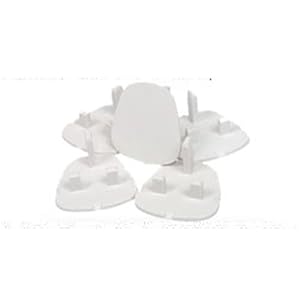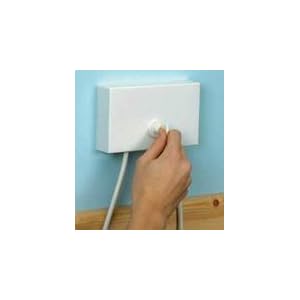I've signed, and posted the link on my social media networking thingy.
And which one would that be RF
I'm on that dreadful facebook.
Also, if anyone would like to follow me, I'll be walking to the pub about half nine.
I've signed, and posted the link on my social media networking thingy.
And which one would that be RF

How would you stop these being made illegal:One might think that the 'non-electrical' device might be a bit of a problem for the legislation and/or Standards, but BS 1363 already covers 'insulated shutter opening devices' (on wallwarts etc.) - which are, in themselves, nothing more than your 'plastic lumps'. ... So, I have no reason to think that BS 1363 (or some other Standard) could not cover 'socket covers' ('plastic lumps') if they wanted to - but what I don't know is whether or not they do (and hence could be referred to by legislation).



Rubbish! 99% of standards exist for reasons that have little do do with legislation.The problem is that this is a chicken and egg issue, frankly I thing it ludicrous to query the petition on the basis that there is no relevant standard, the reason for there being no standard is that there is no regulation!
Regulation needs to be put in place and the only way is via legislation.
With respect, it really isn't like that. This is a situation in which it is quite clear which of the chicken and egg has to come first. As I said, one cannot expect a government to write what is effectively a technical standard within a piece of legislation. Do you seriously believe that it would be possible to write legislation which outlawed the selling of products which did not comply with a not-yet-written Standard?The problem is that this is a chicken and egg issue, frankly I thing it ludicrous to query the petition on the basis that there is no relevant standard, the reason for there being no standard is that there is no regulation! Regulation needs to be put in place and the only way is via legislation.
They both are.Surely this is a better solution?
Or even this?
I sincerely hope not. However, if there is a Standard which defines what is deemed to be 'safe' for a particular type of product, I would have no problem in outlawing things which failed to comply with that Standard.But are we to start outlawing things just because they are not the best available?
True - but presumably the latter legislation might be modified accordingly?One of the possible pitfalls in the proposal is that wall-warts, phone chargers and so on are specifically excluded from the Plugs and Sockets (safety) Regulations, because they are electrical appliances and therefore fall under the Electrical Equipment (Safety) Regulations, and governments don't usually like things to be dealt with in more than one set of regulations.
I thought that, in general, there was not too much of a problem with a Member State enacting legislation which went beyond a Directive, provided that it encompassed what was required by the Directive. I've certainly come across situations, relating to various matters of 'safety', in which some Member States have been more cautious and have enacted legislation that 'went further' than was required by a European Directive.Also the Electrical Equipment (Safety) Regulations are derived from a European Directive, and it would be difficult to introduce a deviation from those regulations that was specific to the UK.
That depends on which Article of the Treaty of Rome was used to implement the Directive. many of the Directives are there to create a single market by removing barriers to trade, and introducing national legislation that goes further than the directive is seen as a technical barrier to trade.I thought that, in general, there was not too much of a problem with a Member State enacting legislation which went beyond a Directive, provided that it encompassed what was required by the Directive. I've certainly come across situations, relating to various matters of 'safety', in which some Member States have been more cautious and have enacted legislation that 'went further' than was required by a European Directive.
Kind Regards, John.
I suppose that makes some sense. Cases I've come across have generally not related to 'trade'.That depends on which Article of the Treaty of Rome was used to implement the Directive. many of the Directives are there to create a single market by removing barriers to trade, and introducing national legislation that goes further than the directive is seen as a technical barrier to trade.

Also the Electrical Equipment (Safety) Regulations are derived from a European Directive, and it would be difficult to introduce a deviation from those regulations that was specific to the UK.


If you need to find a tradesperson to get your job done, please try our local search below, or if you are doing it yourself you can find suppliers local to you.
Select the supplier or trade you require, enter your location to begin your search.
Are you a trade or supplier? You can create your listing free at DIYnot Local
